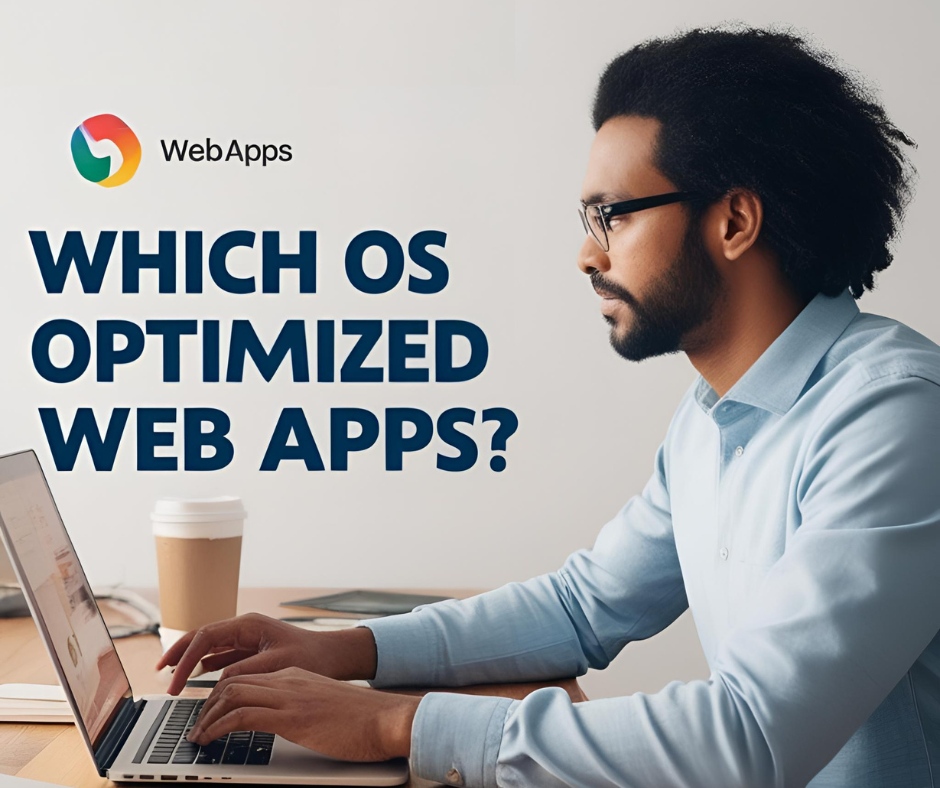If you’ve ever built, deployed, or even just dreamed about launching a web app, you’ve probably wondered, “Which operating system should I use?”
Maybe you’ve heard Linux is king, or you’re stuck with Windows at work, or you’re a MacBook loyalist. The web is full of strong opinions-but the truth is, there’s no one-size-fits-all answer.
In this article, I’ll break down what “optimized for web apps” really means, bust a few myths, and share some of my own unconventional takes from years of building and deploying apps across all sorts of platforms.
What Does “Optimized for Web Apps” Even Mean?
Let’s start with the basics. When people say an OS is “optimized for web apps,” what are they actually talking about? It’s not just about speed, although that’s important. It’s about:
- Performance: How fast and reliably your app runs.
- Compatibility: Will your stack (Node, Python, .NET, etc.) play nice?
- Security: Can you sleep at night knowing your server isn’t wide open?
- Ease of Deployment: How much hair will you pull out getting your app live?
- Developer Experience: Is it fun (or at least not painful) to work with?
And here’s the kicker: The answer can change depending on whether you’re developing, deploying, or hosting your app.
The Usual Suspects: OS Showdown
Linux: The Customizer’s Playground
Let’s get this out of the way-Linux is the backbone of the web. Most servers run it, and for good reason:
- Flexibility: You can strip it down to the bare essentials or load it up with whatever you need.
- Security: Tools like SELinux and AppArmor help keep things locked down.
- Community: If you hit a wall, someone’s probably already solved your problem.
But Linux isn’t perfect. If you’re new, the learning curve can be steep. And sometimes, hardware (especially laptops) can be fussy.
Windows: The Enterprise Powerhouse
If you’re building for the Microsoft world (.NET, Azure, SQL Server), Windows is a natural fit. Plus, with Windows Subsystem for Linux (WSL), you can run Linux tools right inside Windows-pretty cool for hybrid workflows.
- Integration: Plays nicely with Microsoft services and enterprise setups.
- Remote Access: RDP is still one of the easiest ways to manage a server remotely.
The flip side? Windows can be heavy on resources, and licensing costs can add up.
macOS: The Frontend Favorite
If you’re deep into frontend, mobile, or anything Apple, macOS is a dream. Underneath the shiny surface, it’s Unix-based, so you get a lot of the same tools as Linux.
- Great for Hybrid Apps: If you’re building web apps that also need to run on iOS or macOS, you need a Mac.
- Developer Experience: It’s polished, stable, and (mostly) just works.
Downsides? You’re tied to Apple hardware, and you won’t be deploying servers on macOS.
Chrome OS & The Oddballs
Chrome OS is basically a browser with a keyboard. It’s fantastic for schools and thin clients, but not for heavy-duty dev work. Still, for simple web apps and PWAs, it’s surprisingly capable.
There are also niche options like FreeBSD, Haiku, or even running a “web OS” entirely in your browser. Fun to experiment with, but not mainstream.

Unconventional Scenarios & Real-World Doubts
Can I Run a “Web OS” in the Browser?
Sort of! With progressive web apps (PWAs) and cloud desktops, you can do almost everything in a browser now. But for serious development or hosting, you’ll eventually hit the limits.
Is Linux Always Best for Servers?
Not always. If you have legacy apps that need Windows or strict compliance requirements that favor another OS, don’t force Linux. Sometimes, FreeBSD or even Windows Server is the right tool for the job.
What About Security?
All major OSes take security seriously, but Linux gets patches fast and lets you lock things down tight. Windows and macOS have strong protections too, but you need to keep up with updates and best practices.
Does My Dev OS Have to Match My Production OS?
Nope! Develop on whatever makes you happy. Tools like Docker, WSL, and cross-platform frameworks mean you can build on one OS and deploy to another with minimal hassle.
Matching OS to Use Case
Here’s a quick cheat sheet:
| Use Case | Best OS Choice | Why? |
|---|---|---|
| High-traffic web app hosting | Linux (Ubuntu, CentOS) | Fast, scalable, cost-effective |
| Enterprise web portals | Windows Server | Microsoft stack, easy integration |
| Frontend-heavy/PWA development | macOS, Linux | Native tools, browser support |
| Cross-platform/local dev | Windows (with WSL), macOS | Flexibility, tool compatibility |
| Education/thin client | Chrome OS | Simple, secure, easy to manage |
The Unconventional Take: Context Is Everything
Here’s my honest advice: There’s no universal “best” OS for web apps. The right choice depends on your workflow, your team, your stack, and your goals.
- Mix and match: Develop on macOS, deploy to Linux, manage with Windows-modern tools make this easy.
- Experiment: Don’t be afraid to try something new. You might find a setup that boosts your productivity or makes your life easier.
- Stay flexible: The tech world moves fast. What’s best today might change tomorrow.
Is Ubuntu better than Debian for web apps?
Ubuntu is easier for beginners; Debian is rock-solid for production. Choose what fits your comfort level. Ubuntu is easier for beginners; Debian is rock-solid for production. Choose what fits your comfort level.
Can I develop on Windows and deploy on Linux?
Absolutely. Docker and WSL make this easier than ever.
Which OS is most secure for web apps?
Linux has a great security track record, but any OS can be secure if you configure it right and keep it updated.
Does my OS choice affect scalability?
Yes. Linux and Unix-like systems generally offer more control for scaling, but Windows can scale too-especially in enterprise environments.
Conclusion
Don’t stress about picking the “perfect” OS. Focus on what works for you and your project. Prioritize security, flexibility, and (yes!) your own happiness as a developer.
And if you’ve got a weird or wonderful OS setup for your web apps, share it! The best ideas often come from thinking outside the box.


